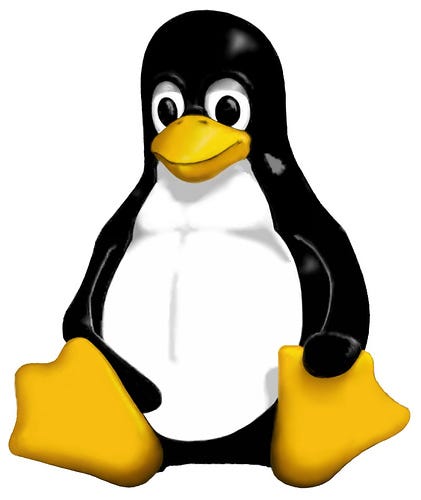Linux: An Open-Source Operating System

In the realm of operating systems, Linux stands tall as a remarkable and versatile option. Born out of the principles of collaboration, open-source development, and community-driven innovation, Linux has grown to become a powerful force in the world of computing. With its robust architecture, flexibility, and unparalleled security, Linux has found its way into various domains, from personal computers to servers, embedded systems, and even mobile devices. In this article, we will explore the key features and advantages of Linux, highlighting its impact on the technology landscape.
Open-Source Philosophy
At the core of Linux lies the open-source philosophy. Unlike proprietary operating systems, Linux is developed collaboratively by a global community of programmers, developers, and enthusiasts. This open approach allows for transparency, peer review, and the continuous improvement of the system. The source code of Linux is freely available, empowering users to modify, distribute, and enhance it as they see fit. This collective effort has fostered a vibrant ecosystem where innovation flourishes, leading to the emergence of countless Linux distributions catering to diverse needs.
Robustness and Stability
One of the defining characteristics of Linux is its robustness and stability. Linux-based operating systems are known for their rock-solid performance, rarely succumbing to crashes, freezes, or slowdowns. The modular design of Linux ensures that components can be updated independently without impacting the entire system, thus providing stability and minimizing disruptions. This makes Linux a preferred choice for critical infrastructure, servers, and high-performance computing environments where reliability is paramount.
Flexibility and Customizability
Linux offers an unparalleled level of flexibility and customizability. The modular nature of the operating system allows users to select and configure only the components they need, optimizing system resources and tailoring the environment to specific requirements. Additionally, the availability of numerous desktop environments and window managers empowers users to choose the look, feel, and functionality that best suits their preferences. Whether it’s a sleek and minimalistic interface or a feature-rich, highly customizable setup, Linux accommodates a wide range of user tastes.
Security and Privacy
In an era dominated by cyber threats, Linux has emerged as a beacon of security. The open-source nature of Linux facilitates rigorous peer review, enabling vulnerabilities to be identified and fixed promptly. Moreover, the Linux community’s proactive approach to security ensures that patches and updates are swiftly distributed, minimizing the window of exposure to potential threats. The inherent security features, such as strong file permissions, sandboxing, and robust access controls, make Linux inherently resistant to malware and unauthorized access. As a result, Linux has gained popularity in both personal computing and enterprise environments, where data protection and privacy are of utmost importance.
Vast Software Ecosystem
Linux boasts a vast software ecosystem that encompasses thousands of applications, utilities, and development tools. The Linux package management systems, such as apt (used by Debian-based distributions) and yum (used by Red Hat-based distributions), simplify the installation and management of software, ensuring a seamless experience for users. Whether it’s productivity tools, multimedia applications, programming frameworks, or server software, Linux offers a wide range of choices to meet diverse needs. Additionally, Linux’s compatibility with various programming languages and its rich development environment make it a favorite among software developers and system administrators.
Conclusion
Linux has evolved from a humble open-source project into a robust, secure, and versatile operating system. Its open-source philosophy, combined with the unwavering dedication of its community, has enabled Linux to become a driving force behind technological innovation. With its rock-solid stability, flexibility, unmatched security, and vast software ecosystem, Linux continues to revolutionize the world of computing. Whether you’re a casual user, a developer, or a system administrator, Linux stands ready to empower



![Nekodex – Earn 20K+ NekoCoin ($20) [Highly Suggested]](https://cdn.bulbapp.io/frontend/images/b4f0a940-f27c-4168-8aaf-42f2974a82f0/1)


































![[ℕ𝕖𝕧𝕖𝕣] 𝕊𝕖𝕝𝕝 𝕐𝕠𝕦𝕣 𝔹𝕚𝕥𝕔𝕠𝕚𝕟 - OM(G) , My Biggest Bag Was A Scam????](https://cdn.bulbapp.io/frontend/images/99de9393-38a8-4e51-a7ab-a2b2c28785bd/1)








